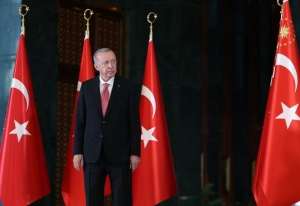
Next stop: vote of no confidence. One of the most significant moments of the parliamentary and especially parliamentary dynamic. Will the majority set up after the elections fall or not? Can another government be formed that receives the validation of a parliamentary majority? Will there be early elections? The answer to all these questions depends on the vote of the MPs. The vote, you say? What vote? Perhaps you haven't found out, but "the Party" has decided the MPs won't vote. And the "Party", in this case, means the PSD! This is where the questions start. And they're complicated ones! Is it constitutional or not for a political entity, in this particular case the leadership of a political party, a handful of people, to be able to impose, without any democratic control, to gimp the mandate of parliamentary by prohibiting them to vote, under the direct, public and explicit threat of political sanctions? The answer is simple. Perfectly constitutional! Why? Because that is what the Rules of the Romanian parliament stipulate, created and approved by the MPs, for the MPs, rules which nobody from the outside can change, save the Constitutional Court, and that can only happen if it is legitimately notified and following proper procedure. Nobody has filed any complaints concerning this, even though the gross violation of democracy is clearly visible! Lovers of subtlety will say that, on principle the decision of the leadership of the PSD does not affect the ability of its MPs to vote. They can ask for the balls to vote and they can place them into the urns without somebody having the ability to prevent them from exercising their voting rights. So, why look for trouble where there is none? Maybe, but democracy isn't just the one in the "principles", but also the one in practice. Particularly the one in practice. Or, in practice, it is clear that the decision and the threats of the leadership of the PSD are introducing a major distortion in exercising the voting rights of a critical number of MPs. And they are first and foremost, Romania's MPs, not those of the PSD! Even if they are elected on the lists of the PSD and with the help of the party, according to the constitutional doctrine, they do not represent in the parliament the PSD, nor its leadership, nor the citizens of a specific electoral precinct, but "the Will of the Nation", and their vote expresses the "National Interest". At least, that's what the doctrine says!
The less simple and more elaborate answer is the same: purely constitutional! Why? Because, by the text of the Constitution, we have accepted that the voting right of the Romanian citizen does not mean that they are required to vote. If this principle is valid for any citizen, then it needs to be valid for MP citizens. Right? Well, no! Even though we call it vote, what MPs do, every day or whenever it is called to express its choices in the Parliament, is not at all the equivalent or the same thing to what the citizen does when they go, once every four years to vote in the parliamentary or local elections. In the case of the citizen, all we are talking about is a fundamental act of instituting and legitimizing a representation mandate. In the case of the elected deputy/senator, the placing of punerea the balls in the voting urns or raising their hand in favor/against/for abstention is simply a method of making a decision in a collective organism. It can be replaced through other decision methods, such as the case of the so-called "passing through inaction", or the passing through consensus. Citizens' vote is irreplaceable! Once replaced, we are exiting democracy. We are entering "managed democracy".
Finally, the truly complicated answer may not ignore the massive interference, unauthorized by any institutional relation, of any party institution in the mechanism of operation of the fundamental authority of democratic government, the Parliament. For now, this response hasn't been formulated by anyone.
This could be done through a modification of the Constitution, by making voting mandatory for all citizens, from where it would follow that no other authority could censor that right/obligation. It could be done far easier, through the Regulations of the Parliament by explicitly ruling out the possibility of MPs not participating in the vote, when a vote is explicitly required by the decision making procedures of one chamber, or of the joint chambers.
Until then, meaning until someone propels us into a world of normalcy, we are left stuck listening to the cacophony produced by the strident noises of a pseudo democracy carefully and intensely "managed" by the group and party interests of those who use the institutions of "Democracy " only to satisfy their own interests. As for the executed topic, it is that of the "dictatorship of the proletariat", a form of government revived in the form of a "dictatorship of the Party", now backed by the dictatorship of an electoral majority, as weakly representative as possible. And in the background, to systematically confuse an electorate that is already perplexed and anesthetized, a long and penetrating trombone noise!



























































